Microsoft is 40 years old today
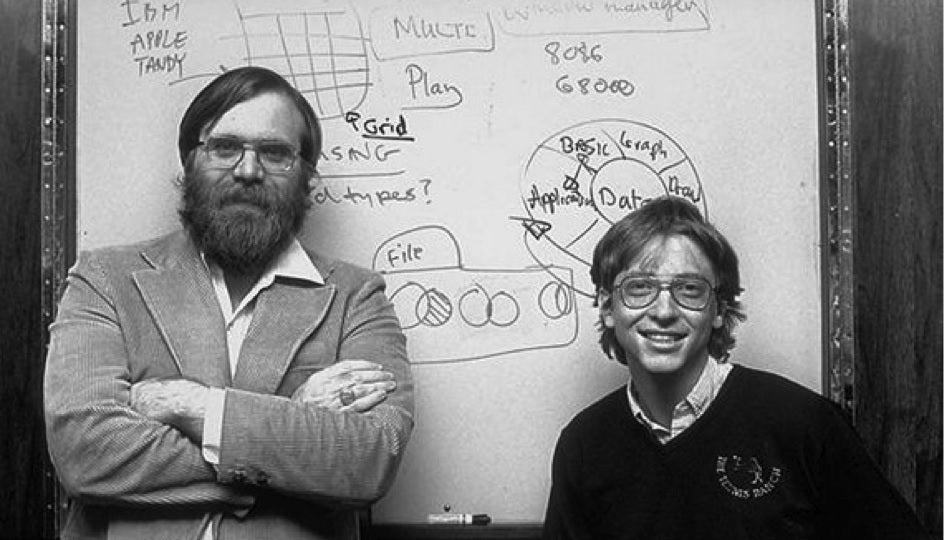
Paul Gardner Allen and William Hentry Gates III
April 4th, 1975, Gerald Ford was president, Richard Nixon was still casting a shadow on the American landscape, the country was reeling from the effects of the OPEC oil embargo of 1973-74, and the US presence in Vietnam was about to become a sore memory.
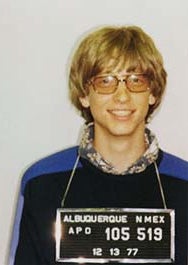
Bill Gates apparently liked to drive fast. Reportedly he got arrested twice, once in 1975 and again in 1977 for speeding and driving without a license.
It is easy to forget, but Microsoft was among the first have a smartphone platform. Yes, Windows Mobile had plenty of shortcomings, but it excelled in ways other devices simply could not at the time. To this day, the HTC HD2 has a bit of cult following thanks to how great the hardware is. Microsoft was a pioneer with wearable technology, the MSN connected Microsoft SPOT watch.
Who can forget Windows? An operating system that changed the world, and while Microsoft is about more than Windows today, who would ever think that we would see a day when OS updates would be offered for free? Who would ever believe that Microsoft would open up its Beta builds of its operating system environment for everyone to participate? Windows is about to begin a new chapter as a platform that spans the desk, tablet, mobile, and augmented reality.
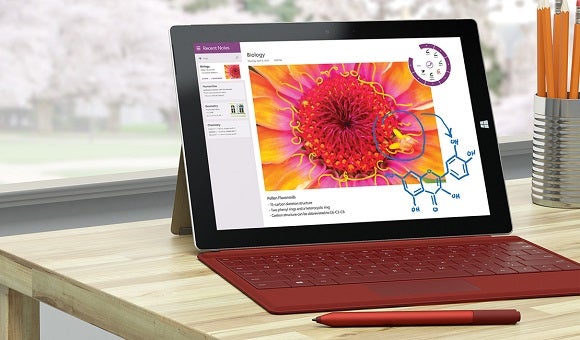
Part of the new Microsoft, the Surface 3 is a serious contender for the consumer tablet.
Microsoft continues to remake itself, quite amazing given that in the 40 years the company has been in existence, it has only had three CEOs. Microsoft’s co-founder, Bill Gates is still an iconic figure, while having gracefully allowed future generations to carry the flame initially set in New Mexico 40 years ago. Today, Bill Gates thinks more about Microsoft’s future than the past. Below is the text of a letter he wrote to employees the day before the 40 year
anniversary:
Tomorrow is a special day: Microsoft's 40th anniversary.
Early on, Paul Allen and I set the goal of a computer on every desk and in every home. It was a bold idea and a lot of people thought we were out of our minds to imagine it was possible. It is amazing to think about how far computing has come since then, and we can all be proud of the role Microsoft played in that revolution.
Today though, I am thinking much more about Microsoft's future than its past. I believe computing will evolve faster in the next 10 years than it ever has before. We already live in a multi-platform world, and computing will become even more pervasive. We are nearing the point where computers and robots will be able to see, move, and interact naturally, unlocking many new applications and empowering people even more.
Under Satya's leadership, Microsoft is better positioned than ever to lead these advances. We have the resources to drive and solve tough problems. We are engaged in every facet of modern computing and have the deepest commitment to research in the industry. In my role as technical advisor to Satya, I get to join product reviews and am impressed by the vision and talent I see. The result is evident in products like Cortana, Skype Translator, and HoloLens -- and those are just a few of the many innovations that are on the way.
In the coming years, Microsoft has the opportunity to reach even more people and organizations around the world. Technology is still out of reach for many people, because it is complex or expensive, or they simply do not have access. So I hope you will think about what you can do to make the power of technology accessible to everyone, to connect people to each other, and make personal computing available everywhere even as the very notion of what a PC delivers makes its way into all devices.
We have accomplished a lot together during our first 40 years and empowered countless businesses and people to realize their full potential. But what matters most now is what we do next. Thank you for helping make Microsoft a fantastic company now and for decades to come.
Early on, Paul Allen and I set the goal of a computer on every desk and in every home. It was a bold idea and a lot of people thought we were out of our minds to imagine it was possible. It is amazing to think about how far computing has come since then, and we can all be proud of the role Microsoft played in that revolution.
Today though, I am thinking much more about Microsoft's future than its past. I believe computing will evolve faster in the next 10 years than it ever has before. We already live in a multi-platform world, and computing will become even more pervasive. We are nearing the point where computers and robots will be able to see, move, and interact naturally, unlocking many new applications and empowering people even more.
Under Satya's leadership, Microsoft is better positioned than ever to lead these advances. We have the resources to drive and solve tough problems. We are engaged in every facet of modern computing and have the deepest commitment to research in the industry. In my role as technical advisor to Satya, I get to join product reviews and am impressed by the vision and talent I see. The result is evident in products like Cortana, Skype Translator, and HoloLens -- and those are just a few of the many innovations that are on the way.
In the coming years, Microsoft has the opportunity to reach even more people and organizations around the world. Technology is still out of reach for many people, because it is complex or expensive, or they simply do not have access. So I hope you will think about what you can do to make the power of technology accessible to everyone, to connect people to each other, and make personal computing available everywhere even as the very notion of what a PC delivers makes its way into all devices.
We have accomplished a lot together during our first 40 years and empowered countless businesses and people to realize their full potential. But what matters most now is what we do next. Thank you for helping make Microsoft a fantastic company now and for decades to come.
reference: Business Insider
Follow us on Google News




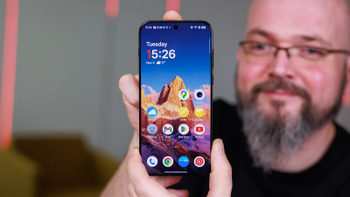


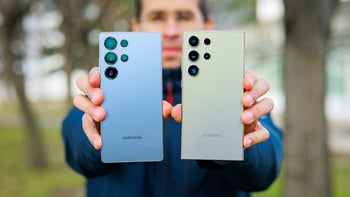


![A new Android bug is making it impossible to install new apps. Are you affected? [UPDATE]](https://m-cdn.phonearena.com/images/article/176703-wide-two_350/A-new-Android-bug-is-making-it-impossible-to-install-new-apps.-Are-you-affected-UPDATE.webp)

Things that are NOT allowed:
To help keep our community safe and free from spam, we apply temporary limits to newly created accounts: